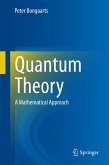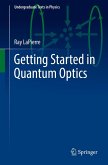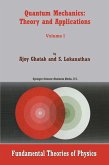This book provides a clear understanding of quantum mechanics (QM) by developing it from fundamental postulates in an axiomatic manner, as its central theme. The target audience is physics students at master's level. It avoids historical developments, which are piecemeal, not logically well knitted, and may lead to misconceptions. Instead, in the present approach all of QM and all its rules are developed logically starting from the fundamental postulates only and no other assumptions. Specially noteworthy topics have been developed in a smooth contiguous fashion following the central theme. They provide a new approach to understanding QM. In most other texts, these are presented as disjoint separate topics. Since the reader may not be acquainted with advanced mathematical topics like linear vector space, a number of such topics have been presented as "mathematical preliminary." Standard topics, viz. derivation of uncertainty relations, simple harmonic oscillator by operator method,bound systems in one and three dimensions, angular momentum, hydrogen-like atom, and scattering in one and three dimensions, are woven into the central theme. Advanced topics like approximation methods, spin and generalized angular momenta, addition of angular momenta, and relativistic quantum mechanics have been reserved for Volume II. ¿
Dieser Download kann aus rechtlichen Gründen nur mit Rechnungsadresse in A, B, BG, CY, CZ, D, DK, EW, E, FIN, F, GR, HR, H, IRL, I, LT, L, LR, M, NL, PL, P, R, S, SLO, SK ausgeliefert werden.









